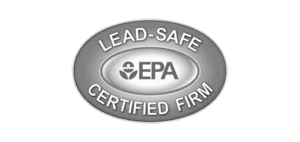As a homeowner, safeguarding your property and loved ones from fire accidents should be a top priority. Fire outbreaks can occur at any time, causing extensive damage to your home and possessions while putting the safety of your family at risk. However, with the right fire damage prevention tips, you can significantly reduce the chances of such incidents occurring.
In this section, we will provide you with essential fire damage prevention tips to ensure the safety of your home and loved ones. By following these guidelines, you can create a safe environment and minimize the risk of fire accidents.
Key Takeaways
- Proper smoke alarm installation can detect fire early and save your life.
- Placing fire extinguishers in strategic locations can help contain small fires before they spread.
- Creating a fire-safe home environment involves proper storage and handling of flammable materials and regular maintenance of appliances and wiring.
- Developing an emergency escape plan that is understood by all household members can ensure quick and safe evacuation during a fire outbreak.
- By implementing these fire damage prevention tips, you can minimize the risk of fire outbreaks and protect your home and loved ones.
Importance of Smoke Alarms and Fire Extinguishers
Smoke alarms and fire extinguishers are two of the most crucial tools for fire damage prevention. Smoke alarms can detect smoke and alert you to the danger, giving you time to escape or take action. Fire extinguishers can help you put out small fires before they become out of control.
It’s important to install smoke alarms throughout your home, especially in bedrooms and common areas. Make sure they are working correctly by checking the batteries regularly and replacing them every six months.
Fire extinguishers should also be placed in strategic locations, such as the kitchen and garage. Check the pressure gauge monthly to ensure they are fully charged and ready to use in case of an emergency.
Remember, while smoke alarms and fire extinguishers can be lifesaving tools, it’s essential to know when to use them. If a fire is too large or spreading quickly, evacuate immediately and call 911.
Check out the table below for a quick overview of the importance of smoke alarms and fire extinguishers:
| Smoke Alarms | Fire Extinguishers |
|---|---|
| Detect smoke and alert you to danger | Can put out small fires before they become out of control |
| Should be installed throughout your home, especially in bedrooms and common areas | Should be placed in strategic locations, such as the kitchen and garage |
| Check the batteries regularly and replace them every six months | Check the pressure gauge monthly to ensure they are fully charged and ready to use |
Don’t take chances with fire safety. Invest in smoke alarms and fire extinguishers and make sure they are working correctly. By taking these simple steps, you can significantly reduce the risk of fire damage to your home and protect your loved ones.
Creating a Fire-Safe Environment
Creating a fire-safe environment within your home is an essential step in fire damage prevention. It involves taking measures to reduce the risk of fire hazards by ensuring that all flammable materials are stored appropriately, electrical systems are appropriately maintained, and appliances are in good working condition.
Here are some practical tips for creating a fire-safe environment:
- Proper storage and handling of flammable materials: Always store flammable materials such as gasoline, propane, and solvents in a well-ventilated area away from any ignition sources. Ensure that flammable liquids are stored in approved and clearly labeled containers.
- Electrical safety: Avoid overloading electrical outlets and extension cords, and never run cords under rugs or furniture. Replace damaged or frayed cords immediately, and use surge protectors to protect electronic devices from power surges.
- Regular maintenance: Keep appliances and electrical systems in good working condition by having them serviced regularly by a qualified technician. Clean dryer vents regularly to prevent build-up of lint, and replace air filters in heating and cooling systems as recommended.
Implementing these measures can significantly reduce the risk of fire accidents in your home. However, it’s essential to remain vigilant and always be on the lookout for potential hazards. By staying informed and educated on fire safety, you can ensure that your home is a safe environment for you and your loved ones.
Developing an Emergency Escape Plan
Creating an emergency escape plan is critical to ensuring the safety of your loved ones in the event of a fire. Follow these steps to develop an effective plan:
- Identify escape routes: Carefully examine your home and identify all possible escape routes, such as doors and windows. Make sure everyone in your household is aware of these routes.
- Assign responsibilities: Decide who will be responsible for helping children, the elderly, or pets escape. Assign specific tasks to each person to ensure an organized and speedy evacuation.
- Practice drills: Regularly practice your emergency escape plan with your household, so everyone knows what to do in case of an emergency. Conduct drills during the day and at night, and test your smoke alarms to ensure they’re functioning correctly.
Remember, it’s better to be over-prepared than underprepared in an emergency. Ensure that everyone in your household is familiar with the emergency escape plan and knows what to do in case of a fire.
Conclusion
Implementing these fire damage prevention tips can make a significant difference in safeguarding your home and loved ones. By prioritizing safety measures such as smoke alarms, fire extinguishers, a fire-safe environment, and an emergency escape plan, you can minimize the risk of fire accidents and protect your property.
Remember, it’s crucial to stay prepared and stay safe, especially when it comes to fire safety. By taking the necessary precautions and following these guidelines, you can rest assured that your home and family are protected from fire damage.
FAQ
What are some effective fire damage prevention tips for safe homes?
Some effective fire damage prevention tips for safe homes include keeping flammable materials stored properly, ensuring electrical safety, maintaining appliances and wiring, and having a well-defined emergency escape plan.
Why are smoke alarms and fire extinguishers important?
Smoke alarms and fire extinguishers are important because they provide early detection of fires and allow for prompt action. Smoke alarms alert occupants to smoke or fire, while fire extinguishers help contain small fires before they spread.
How should smoke alarms and fire extinguishers be installed and maintained?
Smoke alarms should be installed on every level of your home, including inside bedrooms and outside sleeping areas. They should be tested monthly and have batteries replaced at least once a year. Fire extinguishers should be placed in accessible locations, checked regularly to ensure they are in working condition, and replaced when expired.
What does creating a fire-safe environment entail?
Creating a fire-safe environment involves proper storage and handling of flammable materials, practicing electrical safety by not overloading outlets and using appropriate extension cords, and regularly maintaining appliances and wiring to prevent electrical fires.
How do you develop an effective emergency escape plan?
To develop an effective emergency escape plan, you should identify multiple escape routes in your home, assign responsibilities to each household member, establish a meeting point outside, and regularly practice drills to ensure everyone knows what to do in case of a fire.









